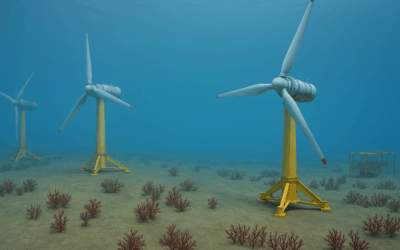A pioneering road test of a Harley-Davidson motorcycle powered entirely by solar gasoline signifies a major milestone in green transportation. It demonstrates the potential for solar fuels to power existing vehicles and revolutionise sustainable mobility at industrial scale.
A Harley-Davidson motorcycle has become an unlikely symbol of climate innovation after completing a successful road test powered entirely by solar-made gasoline. The fuel was produced by Swiss company Synhelion at its DAWN facility in Jülich, Germany — the world’s first industrial-scale plant dedicated to solar fuel production.
“This is a dream come true,” said Aldo Steinfeld, Professor of Renewable Energy Carriers at ETH Zurich. “We have been working on the technology for many years, and now it is finally operating on a large scale.” Steinfeld’s research laid the foundation for Synhelion’s solar thermochemistry process, which uses concentrated sunlight to convert water and carbon dioxide into syngas — a mix of hydrogen and carbon monoxide — that can then be refined into synthetic fuels like gasoline or kerosene.
The DAWN plant, operational since June 2024, integrates a heliostat field, solar receiver, and thermochemical reactor to deliver continuous, high-temperature solar heat for fuel synthesis. Synhelion says the process enables “net-zero” fuels because the CO₂ emitted when the fuel is used is equal to the amount captured during production.
Philipp Furler, Synhelion’s CEO and co-founder, described the test ride as “a major milestone” for the company. “It proves that solar fuels are not a thing of the future — they are here, and they work with existing vehicles and infrastructure.”
The solar gasoline used in the test is chemically identical to fossil-based fuel and can be blended or used directly in today’s engines. This makes it a promising option for sectors like aviation, where electrification remains challenging. Synhelion is already working with Swiss International Air Lines, a subsidiary of the Lufthansa Group, to bring solar-based sustainable aviation fuel (SAF) to market.
Gianluca Ambrosetti, Synhelion’s co-founder and CTO, emphasized the broader significance of the technology. “We are demonstrating that it is possible to use the enormous potential of solar energy to produce sustainable fuels and drive the energy transition forward.”
Despite the breakthrough, the company acknowledges that challenges remain in scaling up production and reducing costs. But as synthetic fuels continue to attract attention from policymakers and industry, Synhelion’s road test offers a glimpse of what a solar-powered future might look like — one where legacy vehicles run on clean, sun-sourced energy without a complete overhaul of existing systems.




